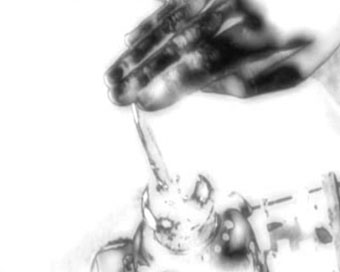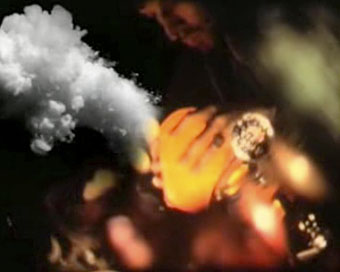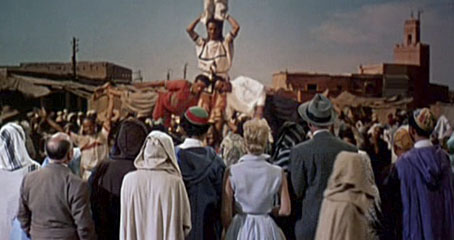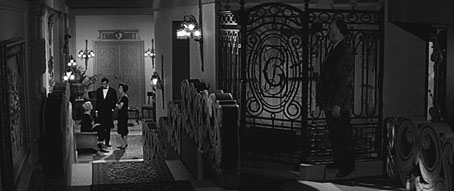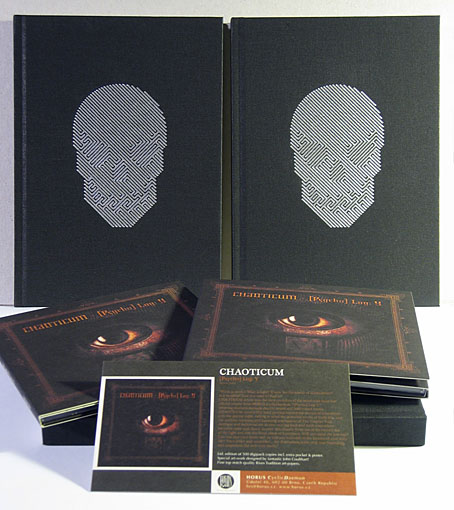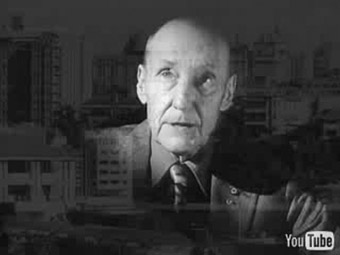The (Electric Seance) concept was inspired by the discovery that many early pioneers and inventors of electrical apparatus and radiophonic equipment believed that they could use their inventions to contact ‘the other side’.
Scott Johnston
This month’s issue of The Wire has Birmingham group Pram on the cover. Inside they discuss working with filmmaker Scott Johnston whose Electric Seance production was used as part of the group’s Photophonic Experiment shows last year. I have to admit I was never much taken with Pram’s early work, preferring their Too Pure stablemates Laika and Mouse on Mars circa 1997. (Having said that, I’m listening to their Helium album now and it sounds better than I remembered.) I did appreciate the references, however, which encompassed a range of interests including White Noise, Maya Deren and the films of Karel Zeman, all of whom have been the subjects of previous posts here. The band were keen to produce an alternative soundtrack for Zeman’s Invention of Destruction but the Czech Film Archive refused their offer.
Pram seem to have become more interesting in the intervening years, unlike their compatriots. Laika lost me when they got too poppy while Mouse on Mars abandoned melody for a blizzard of increasingly tiresome electronic abstraction. Electric Seance gives some idea of where Pram are at now which isn’t too far removed from the same world of retro-electronica and English spookiness being explored by the Ghost Box artists. The Wire has the soundtrack to Electric Seance as a free download.
And following from yesterday’s reference to Last Year in Marienbad, another film in Scott Johnston’s YouTube collection, The Arranged Time, is a tale of sinister recursion which he says is indebted to Resnais’s classic enigma.
Previously on { feuilleton }
• White Noise: Electric Storms, Radiophonics and the Delian Mode
• The Séance at Hobs Lane
• New Delia Derbyshire
• A playlist for Halloween
• Ghost Box
• The Photophonic Experiment

